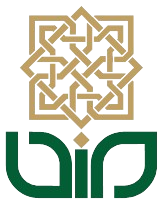The Faculty of Islamic Economics and Business UIN Sunan Kalijaga held the 6th Febillionaire event on November 10-11, 2020. This event was conducted virtually in response to the ongoing COVID-19 pandemic. The target audience for this event encompassed not only FEBI students but also the general public.
This year’s Febillionaire centered around the theme “Enhancing Soft Skills and Revitalizing Culture, as well as the Role of Islamic Economics in the New Normal Era.” Preceding the various events of the 6th Febillionaire, a national webinar was held with the theme of Islamic economics as a solution to the post-pandemic crisis. The webinar featured competent moderators and speakers relevant to the theme. Mohammad Faisal Reza, the Chairman of Febillionaire, delivered the opening remarks, discussing the various competitions held, including virtual shalawat (tribute) competition, poetry creation and visualization competition, photo contest, and E-Sport competition.
Following this, Ade Surya Sukma, the Chairman of Dema FEBI UIN Sunan Kalijaga, delivered a speech emphasizing the importance of overcoming the challenges presented by the pandemic and positioning Febillionaire as the initial step towards thriving in the new normal era.
Dr. Ahmad Salehudin, S.Th.I., M.A, the Vice Dean III of FEBI UIN Sunan Kalijaga, stressed that academic achievement alone does not ensure future success. He highlighted the importance of developing cooperation skills and fostering innovation, which are increasingly vital in the world of work and industry. He emphasized the need for students to cultivate the ability to propose innovative solutions to contemporary challenges and issues.
Hasan Albana, SEI., M.E., a lecturer at FEBI UIN Sunan Kalijaga, served as the webinar moderator. Meanwhile, Agustianto Mingka, the Chairman of IAEI Institutional Affairs, elaborated on the Role of Islamic Economics in Reconstructing the Post-Pandemic Crisis. The discussion underscored the current and future need for motivation and advancement in digital economics, particularly through financial technology, to effectively navigate the evolving business landscape’s opportunities and challenges. The sectors with potential to influence the development of Islamic economics are diverse, encompassing Islamic education, the halal industry (food, fashion), finance (hajj funds, umrah), commercial finance, and Islamic legal politics.
As the second speaker, Bhima Yudistira, an economist at INDEF, presented an overview of various innovations aimed at facilitating the public’s engagement with Islamic economics, including the use of cash endowments.
In the concluding presentation, Roy Renwarin, the Director of Strategic Development at YEWI, addressed the utilization of endowments as a tool for economic recovery. Following the pandemic, Indonesia witnessed a 5% decline in growth in the second quarter and a 3% decline in the third quarter. Consequently, the government is committed to maintaining high purchasing power among the public to stimulate economic growth.
